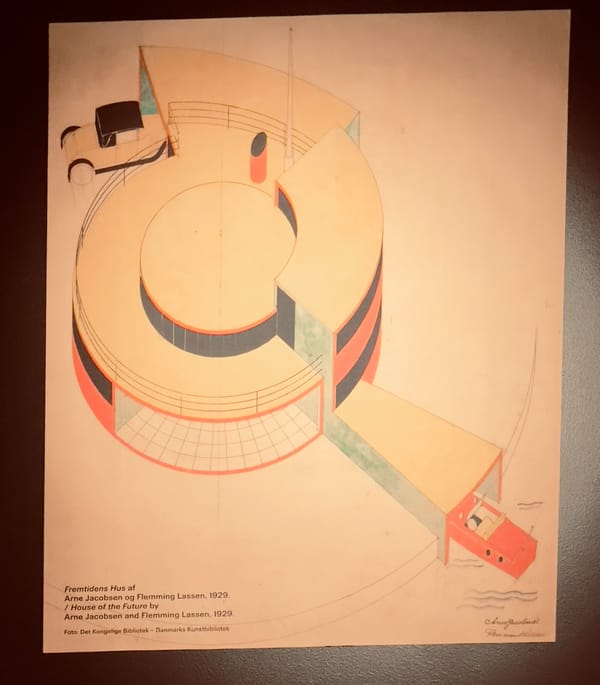The Problem With Personality Tests

Personality tests can help you become the person you're meant to be—or reduce you to a caricature.
The world we live in blows my mind on a daily basis. But there is one thing that fascinates me even more than the beautiful reality we experience: people. I'm in awe of how the most phenomenal (and also the worst) experiences of my life all happened because of other people. So it was natural for me to become enamored with psychology. The more you study human beings, the more you realize that individuals share certain tendencies. This got me thinking: surely someone has devised a system to categorize people based on their personalities, right?
Discovering Personality Tests
That’s how I discovered the world of personality tests. I got to experience their great potential—but also their dangerous pitfalls.
After some research, I found the two most popular and mainstream personality tests: the Myers-Briggs Type Indicator (MBTI) and the Enneagram.
Myers-Briggs Type Indicator (MBTI)
The Myers-Briggs Type Indicator (MBTI) was developed based on Carl Jung's theory of psychological types. It’s essentially a personality quiz that sorts you into one of 16 types based on four key questions about yourself: Are you more energized by people or alone time? Do you focus on concrete facts or possibilities? Do you make decisions more with logic or feelings? And do you prefer planning everything or going with the flow? MBTI has become mainstream over the last several years, although many psychologists tend to roll their eyes at it.
The Enneagram
On the other hand, there’s the Enneagram. The Enneagram wasn't developed through traditional scientific methods but evolved through intuitive insights, clinical observations, and spiritual practices. It classifies personalities into nine interconnected types, each with distinct motivations, fears, and patterns of thinking and behaving.
My Personal Experience
I couldn’t hold myself back and took both tests. I tested as an ENFP in the MBTI and as a Seven in the Enneagram system—which of course makes them by far the best types to be.

According to these personality tests, this means I am highly creative and extroverted but lack structure and organization. However, ask any of my friends or family, and they will tell you I'm actually quite organized. Does this mean the personality test is completely wrong? Absolutely not. On the contrary, my nature does lean toward being more chaotic than I'd prefer. But through trial and error, I've learned to build systems that allow me to tackle life head-on.
The Problem with Outsourcing Personality
But what if someone believes they should start acting according to their personality type just because a certain portion describes their personality? That’s where the greatest problem lies: outsourcing one's personality to the result of a test.
Saying, “I tested as an ENFP, so clearly I'm not organized,” is a lazy way of adopting an avatar of an actual personality that runs much deeper than these surface-level tests. Acting according to how your personality type should act is not discovering your true self—it’s outsourcing the discovery of who you really are to a generic set of behaviors defined by someone else.
Dangers of Classification
The first danger lies in classifying people. Since these tests offer only surface-level evaluations, one might overlook a person's exceptional talent or ability to do something their type isn't known for. For example, let’s take Emma.
Emma is an ISFJ type, also known as the Defender. This type isn’t known for prowess in public speaking. But what if Emma always loved theater and took acting classes when she was young? Despite her personality type suggesting otherwise, this could give her great stage presence and comfort when performing publicly.
Wearing Negative Traits as Badges
The second problem is that personality tests reinforce a significant modern malady: wearing negative traits as badges of honor. Just because your personality type says that you are prone to moodiness doesn't mean that it's something to be proud of. This goes for other traits as well. Especially in today's social media world flooded by pop psychology I see so many dangers. For example, seeing statements like "I acted that way because of my anxious attachment style". It's good that one has the realization why one acted in a particular manner, but that doesn't mean that one should be proud to have acted that way. Having a negative character trait isn't an arrow in the quiver, but a problem to be addressed.
The Fluidity of Personality
One of my other great interests is studying Buddhist philosophy. From my understanding (which is still very limited), the Buddha (Siddhartha Gautama) recognized personality but denied its rigidity. Personality is just another appearance in consciousness and thus fluid. In other words, personality is changeable. This message carries incredible beauty but also a challenge: it shows that we can change the parts we don't like about ourselves, and it is our responsibility to do so.
Practical Use with Caution
Now here’s a caveat: even though I love what the Buddha taught, I also think these personality tests have practical value. They can serve as great indicators of the behaviors to which a person defaults. Even the legendary Graham Duncan mentions in this article that he uses the Enneagram to find talent.
Conclusion
I have to be honest here: I love both of these systems and reading about different personality types. Both systems are great at showing some foundational tendencies of a person. However, there’s also an inherent danger in trusting these systems blindly. I think the following quote describes this conflict perfectly:
"The map is not the territory."
– Alfred Korzybski

A personality test is like a map—useful to a certain degree, but it abstracts the truth. Your actual personality is the territory: much more complex, harder to grasp, but also richer. Just as millennia have changed Earth's landscape, your life experiences will alter parts of your personality.
Use personality tests to understand the current version of yourself better, but don’t let them dictate your behavior.





